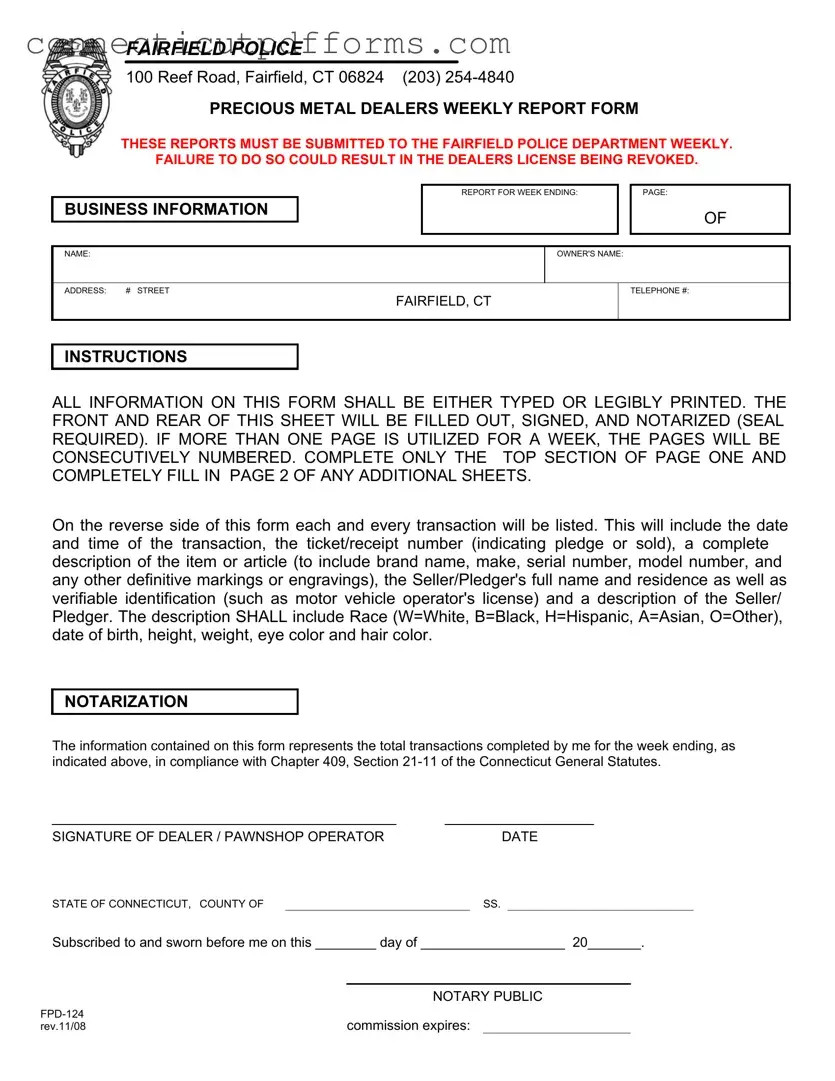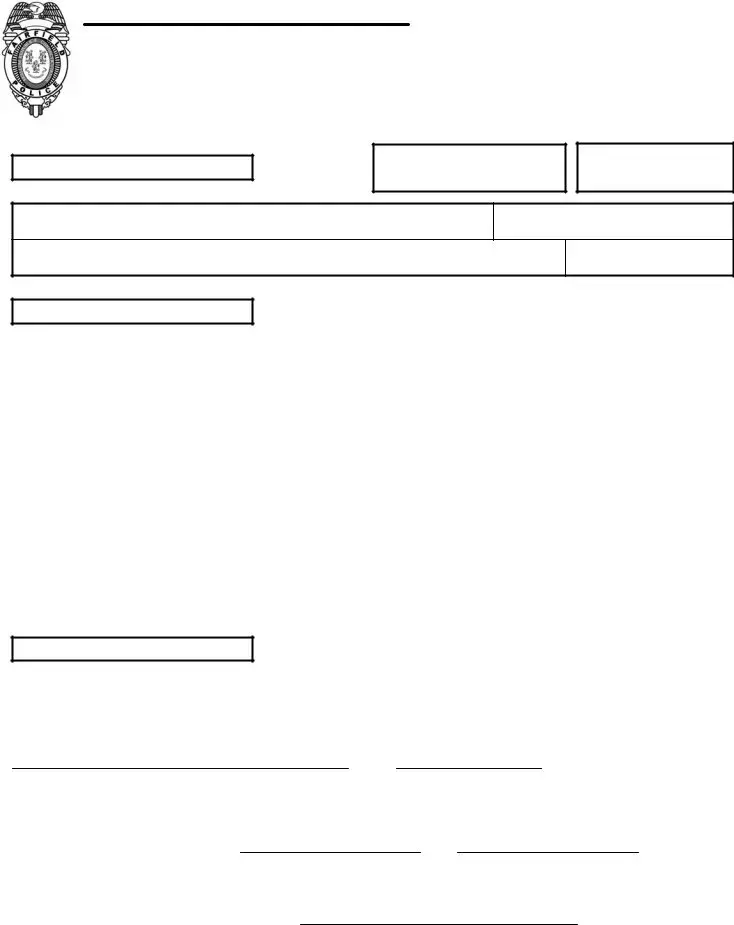The Connecticut Fpd 124 form is similar to the Uniform Commercial Code (UCC) financing statement. Both documents serve to provide a record of transactions involving personal property. The UCC financing statement is filed to give notice of a secured party's interest in the collateral, which can include items like equipment or inventory. Similarly, the Fpd 124 form documents the sale or pledge of precious metals, ensuring that the police department is informed about the transactions. This helps in tracking ownership and preventing theft, just as the UCC filing helps protect lenders by establishing their rights over a debtor's property.
Another document that shares similarities with the Fpd 124 form is the pawn ticket. A pawn ticket is issued by a pawnbroker when a customer pawns an item, detailing the terms of the transaction. Like the Fpd 124, it includes essential information about the item, the pledger, and the transaction date. Both documents serve as a means of record-keeping, ensuring that the pawnbroker and law enforcement can trace the history of the item. This is crucial for preventing the sale of stolen goods and ensuring transparency in the pawnbroking industry.
The Bill of Sale is another document that resembles the Fpd 124 form in terms of its purpose. A Bill of Sale serves as a legal document that transfers ownership of an item from one party to another. It typically includes details about the item, the seller, and the buyer. Like the Fpd 124, which records transactions involving precious metals, a Bill of Sale ensures that there is a clear record of ownership. This can be important for both legal purposes and for proving ownership in case of disputes.
The Sales Tax Permit application also has a parallel with the Fpd 124 form. While the Fpd 124 focuses on transactions involving precious metals, the Sales Tax Permit application is necessary for businesses that sell taxable goods or services. Both documents require detailed information about the business and its transactions, ensuring compliance with state regulations. This helps maintain a level of oversight in the marketplace, similar to how the Fpd 124 form helps monitor the sale of valuable items.
The New York Mobile Home Bill of Sale form is crucial for documenting the transfer of ownership of a mobile home, similar to the importance of various regulatory documents discussed earlier. Just like the Fpd 124 form and pawn ticket, this form ensures that transactions are transparent and legally recognized. For those looking to streamline the process or find templates for such documentation, Templates and Guide can provide valuable resources to ensure compliance and proper record-keeping.
In addition, the IRS Form 8300, which reports cash payments over $10,000, shares similarities with the Fpd 124 form. Both documents are designed to prevent illegal activities such as money laundering and tax evasion. The Fpd 124 form requires detailed information about each transaction, including the seller’s identification, while Form 8300 mandates reporting of large cash transactions. This helps law enforcement and regulatory agencies track suspicious activities in financial transactions.
The Inventory Report is another document that parallels the Fpd 124 form. An Inventory Report is often used by businesses to keep track of their stock, detailing items on hand and their values. Like the Fpd 124, which requires a detailed description of each transaction involving precious metals, an Inventory Report must accurately reflect the items a business possesses. This is essential for both accounting purposes and for ensuring that businesses comply with legal requirements regarding asset reporting.
Lastly, the Connecticut Business Entity Information form is similar to the Fpd 124 form in that both require businesses to provide detailed information about their operations. The Business Entity Information form collects data about the business structure, ownership, and contact details. This is akin to the Fpd 124 form's requirements for submitting information about precious metal transactions. Both forms aim to maintain transparency and accountability within the business community, ensuring that all operations are conducted legally and ethically.



